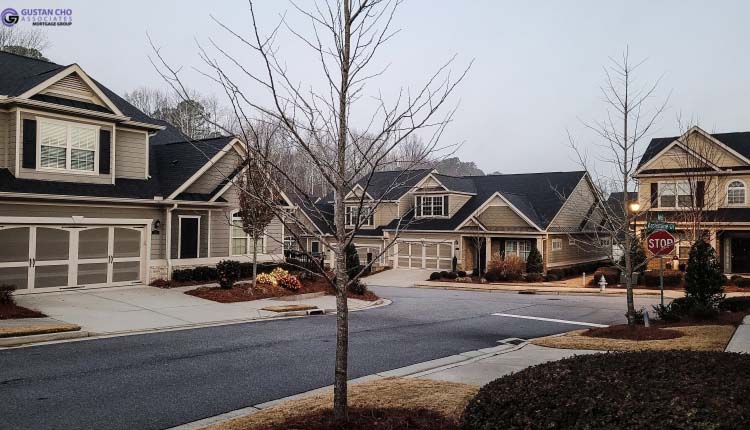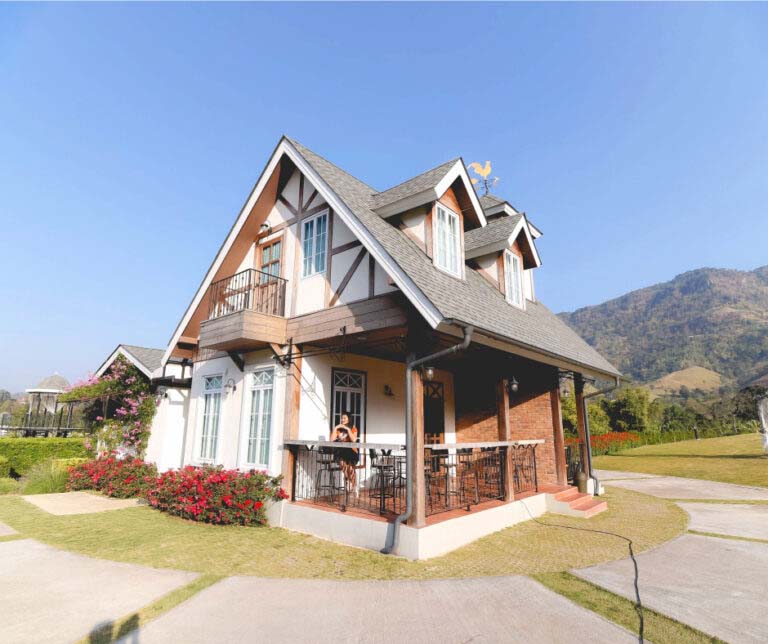In this blog, we will cover and discuss FNMA waiting period guidelines after foreclosure for 2022. Conventional loans are often referred to as conforming loans because they need to conform to Freddie Mac and/or Fannie Mae guidelines. If lenders do not make sure conventional loans they originate and fund do not conform to FNMA or Freddie Mac agency mortgage guidelines, the two giant GSEs (Government Sponsored Enterprises) will not purchase them in the secondary market.
Fannie and Freddie are the two largest buyers of mortgages on the secondary mortgage markets. Conventional loans are called conforming loans because they need to conform to Fannie Mae and/or Freddie Mac Mortgage Guidelines. The Federal Housing Finance Agency (FHFA) is the federal regulatory agency that regulates Fannie Mae and Freddie Mac.
Difference Between Conforming Versus Government Loans
Conforming loans are not government loans. The reason lenders conform to Freddie Mac and Fannie Mae Guidelines is Fannie/Freddie will not purchase conventional loans that do not conform to their lending guidelines. Fannie Mae is more popular than Freddie Mac. Both mortgage giants have similar mortgage guidelines. There are mandatory waiting period requirements after the housing event to qualify for conventional loans
What Is A Housing Event?
A housing event is the following:
- Foreclosure
- Deed In Lieu Of Foreclosure
- Short Sale
Changes And Updates on FNMA Waiting Period Guidelines on Foreclosure Versus Deed In Lieu And Short Sale
The 2-year waiting period after a short sale and deed in lieu of foreclosure with a 20% down payment to qualify for a conventional loan came to a halt effective midnight on August 15, 2014. New Fannie Mae Guidelines will eliminate the 2-year waiting period after a short sale and deed in lieu of foreclosure. The updated new Fannie Mae guidelines in qualifying for conventional loans after a deed in lieu and/or short sale is now 4 years.
What Is The FNMA Waiting Period After Foreclosure vs Deed In Lieu on Conventional Loans?
Buyers used to be able to qualify for conventional loans 2 years after a short sale or deed in lieu as long as the home buyer had a 20% down payment and re-established credit. There is a 4 year waiting period after a short sale or deed in lieu of foreclosure to qualify for a conventional loan as long as the home buyer has a 5% down payment. There is a seven-year waiting period to qualify for conventional loans after a regular foreclosure.
FNMA Waiting Period Guidelines After Foreclosure vs Deed In Lieu of Foreclosure
The waiting period requirements after foreclosure are different than the waiting period after a deed in lieu and short sale on conventional loans. Homebuyers who have the 5% down payment and had a short sale or deed in lieu of foreclosure can now qualify for conforming loans after meeting a four-year waiting period. First-time homebuyers can qualify for a conventional loan with a 3% down payment on a home purchase. A first-time homebuyer is defined as someone who did not have ownership of a home in the past three years. Borrowers need re-established credit after the housing event.
Fannie Mae Credit Guidelines on Conventional Loans
Fannie Mae guidelines on conforming loans after a housing event allow borrowers to qualify for a conventional loan after a foreclosure, deed in lieu of foreclosure, and a short sale as long as the borrower meets the waiting period requirements. Fannie Mae Credit Guidelines on Conventional loans are straightforward. A prior bankruptcy and/or a housing event does not affect the rates on conventional loans as long as the borrower has met the waiting period requirements. You cannot have any late payments after the housing event. The minimum credit score requirement on conventional loans is 620 FICO credit scores.
Fannie Mae Private Mortgage Insurance Guidelines
The borrower needs to meet all other Fannie Mae and/or Freddie Mac conforming mortgage guidelines. Private Mortgage Insurance is required on buyers who put in less than a 20% down payment. Private mortgage insurance can drop off if the homeowner reaches under 80% loan to value on conventional loans. FHA loans require FHA annual mortgage insurance premium for the life of a 30-year fixed-rate mortgage and cannot be canceled. This holds true no matter how low the loan to value is.
Waiting Period on Conventional Loans With a Prior Mortgage Included in Bankruptcy
Fannie Mae’s guidelines on conforming to loans after a housing event with a mortgage included in bankruptcy are unique. The waiting period for borrowers who have a mortgage included in bankruptcy starts from the bankruptcy discharged date. Guidelines On Conforming Loans After Housing Event on FHA loans are different. FHA loan guidelines for borrowers with a mortgage included in bankruptcy do not start until the finalization of the housing event.
FNMA Waiting Period Guidelines After Short Sale on Conventional Loans
The 4 years waiting period after a short sale or deed in lieu of foreclosure comes with good news. The housing event can happen after the discharge date. For example, if a homeowner had a mortgage included in their Chapter 7 Bankruptcy, the waiting period for them to qualify for a conventional loan is four years from the discharge date. This only holds true if they did not reaffirm the mortgage. The finalization of the housing event does not matter.
When Is The FNMA Waiting Period Start Date on Conventional Loans With a Prior Mortgage Included in My Bankruptcy?
Fannie Mae guidelines on conforming loans after housing event waiting period start date depends on each individual type of event. Fannie Mae and Freddie Mac only go off the discharge date of the bankruptcy. HUD Guidelines require the waiting period to start from the recorded date of the foreclosure, deed in lieu of foreclosure, or short sale and not the discharged date of the bankruptcy. There is a three-year waiting period after the finalization of the housing event to qualify for FHA loans. Borrowers who had a prior mortgage included in Chapter 7 Bankruptcy but had the housing event finalized at a later date may only qualify for a conventional loan.
FNMA Down Payment Requirement on Conventional Loans

Currently, the waiting period is 4 years after a short sale or deed in lieu of foreclosure for home buyers with only a 5% down payment. A 3% down payment on a home purchase is available for first-time homebuyers. Fannie Mae and Freddie Mac define first-time homebuyers are homebuyers who had no ownership of a home in the past three years. Private Mortgage Insurance (PMI) is required on conventional loans with higher than 80% LTV. If the property appreciates and the loan to value falls at and/or below 80% LTV, the PMI can drop off.
Fannie Mae And Freddie Mac Guidelines on Student Loans
Deferred student loans are not accepted on conventional loans. Income-Based Repayment (IBR) is allowed on conventional loans. This holds true even though the income-based repayment is a zero payment. IBR payments need to report on the borrower’s credit report. If IBR does not report on the credit report, the lender needs to do a credit supplement.
Deferred Student Loan Guidelines on Conventional Loans
Fannie Mae and Freddie Mac do not accept deferred student loans. If the borrower has a large student loan balance, Fannie Mae and Freddie Mac require 0.50% of the outstanding loan balance to be used as a monthly hypothetical debt. HUD has exactly the same student loan guidelines as Fannie Mae and Freddie Mac. HUD allows IBR payments on FHA loans. HUD does not allow deferred student loans even though the deferred student loan is longer than 12 months. HUD allows income-based repayment on FHA loans.
Conventional Loans With Bad Credit
Just waiting out the waiting period and having the 3% to a 5% down payment is not the only qualification. Re-established credit with timely payments is required. Having a history of late payments, collections, charge-offs, and judgments after the short sale and/or deed in lieu of foreclosure is normally a deal killer. One or two late payments after bankruptcy and/or foreclosure are not always a deal killer. It depends on the automated underwriting system findings. Gustan Cho Associates offers one day out of foreclosure and one day out of bankruptcy non-QM loan programs.
Non-QM Loans One Day Out Of Foreclosure And Bankruptcy
Gustan Cho Associates has non-QM home loan mortgage programs where there is no mandatory waiting period after a housing event and no waiting period after bankruptcy. In a booming housing market where home prices are skyrocketing, many home buyers can benefit with non-QM loans one day out of foreclosure and/or bankruptcy with a 30% down payment.
Home Buyers who need to qualify for conforming or government loans or non-QM loans with a mortgage company licensed in multiple states can contact us at Gustan Cho Associates at 800-900-8569 or text us for a faster response. Or email us at gcho@gustancho.com. We are available 7 days a week, on evenings, weekends, and holidays.
NON-QM Mortgages With No Waiting Period After Housing Event
Gustan Cho Associates now offers non-QM mortgages with no waiting period after housing event. Home Buyers can qualify for non-QM loans one day out of foreclosure, deed in lieu of foreclosure, short sale. 10% to 20% down payment is required. The amount of down payment depends on the borrowers’ credit scores. The great news with non-QM loans is that no private mortgage insurance is required. There are no loan limits like government and conventional loans. Non-QM Jumbo Mortgages are becoming increasingly popular. NON-QM Loans for self-employed borrowers do not require any income tax returns. 12 months bank statement deposits are averaged to determine borrower’s monthly income. Up to 50% debt to income ratios allowed.
New Fannie Mae Waiting Period Guidelines After Housing Event
The new Fannie Mae waiting period guidelines after a conventional mortgage loan borrower to qualify for a conventional loan after a short sale or deed in lieu of foreclosure is now 4 years:
- Fannie Mae changed the two-year waiting period requirement with 20% down payment after a short sale or deed in lieu of a mandatory 4 year waiting period
- There is good news for borrowers who do not have the 20% down payment and only have the 5% down payment on a home purchase
- Home Buyers no longer need a 10% down payment to qualify for a conventional loan after the 4 year waiting period requirement
- Fannie Mae will allow a home buyer to only put a 5% down payment on a home purchase
- Borrowers can qualify for a conventional mortgage loan 4 years after a short sale or deed in lieu of foreclosure
This article on Fannie Mae Guidelines On Conforming Loans After Housing Event was updated on July 24th, 2022.
Related> Latest from Inside Mortgage Finance









